December 15, 2015
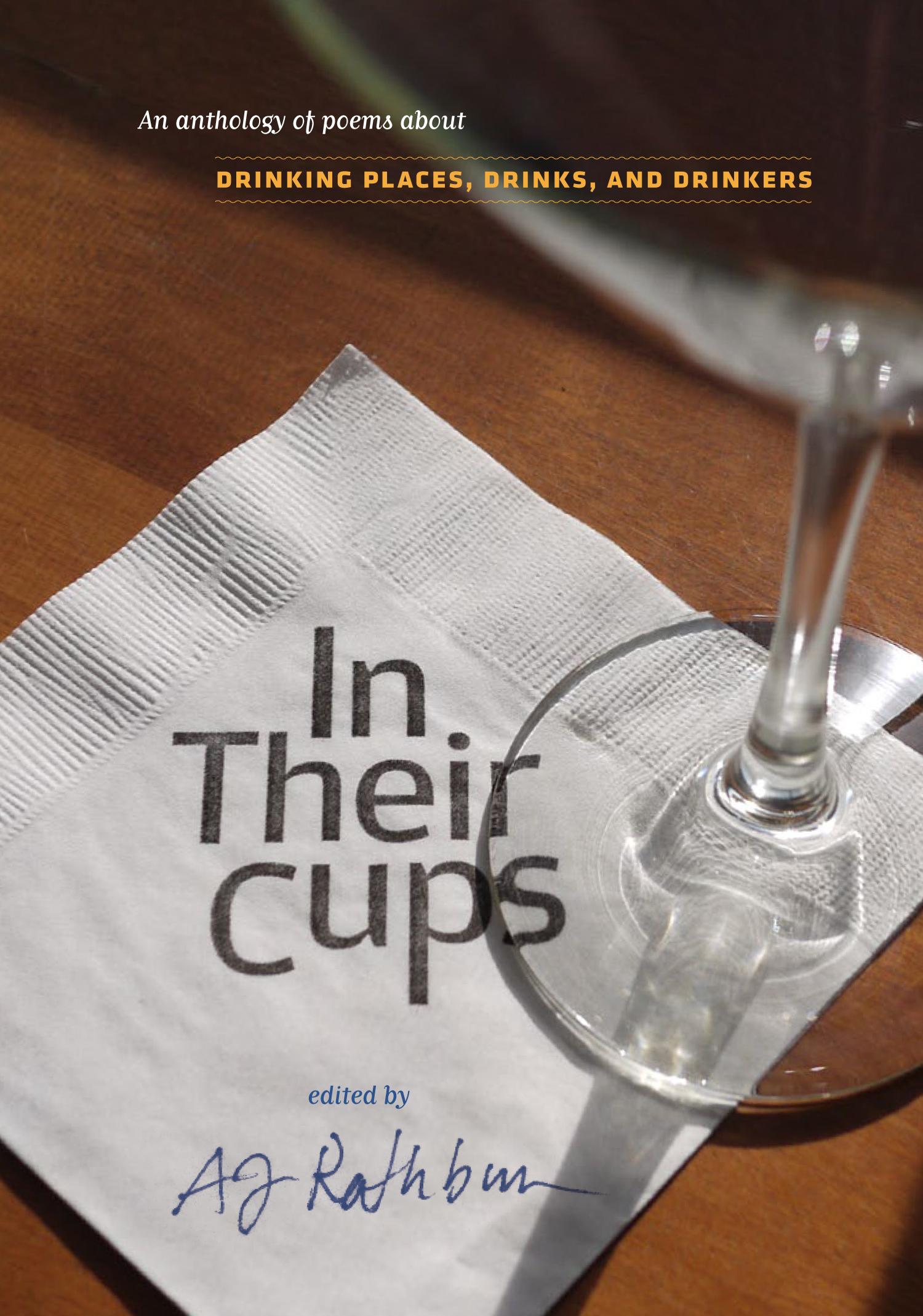 It’s the time of year when everyone wants to borrow your punch bowl – heck, everyone wants to borrow my punch bowl, too, so I completely get where you’re coming from when you don’t want to let said punch bowl out of your sight. But, it’s also the season when we think most kindly, perhaps, of our friends and family. And those are the exact groups that want to borrow punch bowls! So, you probably have to lend it out. I’ll understand if you can’t exactly smile with the lending. But, I do have two ideas to help alleviate the potential pain. First, read the classic Oliver Wendell Holmes poem, “On Lending a Punch Bowl,” so you can know that others through history have gone the same route. Second, pick up the tipsy poetry collection In Their Cups, which features this very poem (and many other great ones). Actually, pick up two, and give one out when you loan the punch bowl. It seems the borrower should be reading it as well.
It’s the time of year when everyone wants to borrow your punch bowl – heck, everyone wants to borrow my punch bowl, too, so I completely get where you’re coming from when you don’t want to let said punch bowl out of your sight. But, it’s also the season when we think most kindly, perhaps, of our friends and family. And those are the exact groups that want to borrow punch bowls! So, you probably have to lend it out. I’ll understand if you can’t exactly smile with the lending. But, I do have two ideas to help alleviate the potential pain. First, read the classic Oliver Wendell Holmes poem, “On Lending a Punch Bowl,” so you can know that others through history have gone the same route. Second, pick up the tipsy poetry collection In Their Cups, which features this very poem (and many other great ones). Actually, pick up two, and give one out when you loan the punch bowl. It seems the borrower should be reading it as well.
This ancient silver bowl of mine, it tells of good old times
Of joyous days, and jolly nights, and merry Christmas chimes
They were a free and jovial race, but honest, brave, and true
That dipped their ladle in the punch when this old bowl was new.
– Oliver Wendell Holmes, On Lending a Punch-Bowl
April 2, 2012
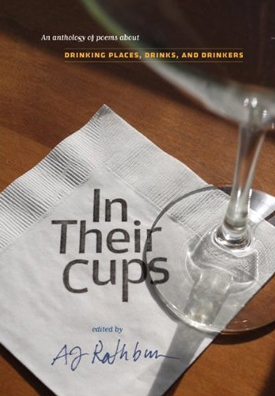 It’s now just about a year since the beginning of wife Nat and I’s last month of Italian pre-tirement (if that makes sense–we came back May of last year). Which is, if not tragic, at least personally sad. Luckily, there’s wine here–even if it does come packing a lot of markup. But it’s here, and brings some of Italy along with it. And luckily there’s Francesco Redi. Who was a physician (to some of those Medici dukes), scientist, and poet. Those days you could be more of everything (and by those days, I mean the 1600s). He was also from Arezzo (where I spent a few fun days when living there) and wrote the poem “The Mamelukes May Love,” all about wine (said poem translated in In Their Cups). The bottom is just the poem’s finale—hey, you can buy the book for the whole thing and help me get back to Italy.
It’s now just about a year since the beginning of wife Nat and I’s last month of Italian pre-tirement (if that makes sense–we came back May of last year). Which is, if not tragic, at least personally sad. Luckily, there’s wine here–even if it does come packing a lot of markup. But it’s here, and brings some of Italy along with it. And luckily there’s Francesco Redi. Who was a physician (to some of those Medici dukes), scientist, and poet. Those days you could be more of everything (and by those days, I mean the 1600s). He was also from Arezzo (where I spent a few fun days when living there) and wrote the poem “The Mamelukes May Love,” all about wine (said poem translated in In Their Cups). The bottom is just the poem’s finale—hey, you can buy the book for the whole thing and help me get back to Italy.
Sweet ladies,
for a moment, do not drink,
but run your fingers like garlands
through my hair. I won’t crave your
sugary egg punch, or golden
sorbets, a thousand fragranced waters,
because these indolent drinks are only
for your sweet lips. Wine, wine
is for those desire euphoria,
to forget their fears. But be not shy about it–
I tip my glasses crazily, happily,
at least six times a year.
— Francesco Redi, The Mamelukes May Love
March 26, 2012
Once in a while, even I can step back and let other do the talking. As long as what they’re going to say is quick, cause really, I can’t give up the stage for long. No, no, what I meant to say is as long as what they say has serious weight and meaning. Or is really jolly. Or both, as with the below short poem called Five Reasons from 1600’s theologian-philosopher (theolopher?) Henry Aldritch. It’s featured in that book that everyone should have (at least everyone who like a drink and can read), In Their Cups. It’s good enough that someone should have it as a tattoo. Maybe you?
If all be true that I do think,
There are five reasons we should drink:
Good wine, a friend, or being dry,
Or lest we should be by and by,
Or any other reason why.
— Henry Aldritch, Five Reasons
January 3, 2011
 Hello hello, and sorry for the extended holiday break from blog posts. But at least I left you with the first two episodes of the new season of the Cocktail to Cocktail Hour (still four more new episodes left—can you believe it!). And, I’m back to help you start your New Year right, with a link to a blog post on the PBS blog The Daily Need, a post which features videos from four (that’s right, four) of the poets who have poems in In Their Cups: An Anthology of Poems about Drinking Places, Drinks, and Drinkers. Each poet is reading one of the poems they have in the book while sipping on a favorite drink. I can’t think of any way to kick start a cocktail-a-rific and poetic year than by watching the videos (repeatedly, to ensure the year is really all that and then some). The post includes videos featuring amazing writers (and charming drinking companions) Ed Skoog, Amy Fleury, Emily Bedard, and also a video with me (wearing a boss coat, I have to admit). So what are you waiting for? Get your year started right by heading to the Daily Need now.
Hello hello, and sorry for the extended holiday break from blog posts. But at least I left you with the first two episodes of the new season of the Cocktail to Cocktail Hour (still four more new episodes left—can you believe it!). And, I’m back to help you start your New Year right, with a link to a blog post on the PBS blog The Daily Need, a post which features videos from four (that’s right, four) of the poets who have poems in In Their Cups: An Anthology of Poems about Drinking Places, Drinks, and Drinkers. Each poet is reading one of the poems they have in the book while sipping on a favorite drink. I can’t think of any way to kick start a cocktail-a-rific and poetic year than by watching the videos (repeatedly, to ensure the year is really all that and then some). The post includes videos featuring amazing writers (and charming drinking companions) Ed Skoog, Amy Fleury, Emily Bedard, and also a video with me (wearing a boss coat, I have to admit). So what are you waiting for? Get your year started right by heading to the Daily Need now.
Tags: Amy Fleur, Cocktail video, drinking poets, Drinking Writer, Ed Skoog, Emily Bedard, In Their Cups, poet video, The Daily Need
Posted in: Cocktail Videos, Drinking Writer, Ed Skoog, In Their Cups
September 24, 2010
 For the last poem in In Their Cups week 2010 (celebrating the release and release party this Sunday for In Their Cups and the drinking poems contained therein, as if you didn’t know), I wanted to highlight one of the two poems in book by Ed Skoog (I should mention though, that he also has translations in the book from three languages–you’ll have to look to find out which languages). Without Ed, In Their Cups would have been called “Cups with Holes” and been awfully leaky, cause he not only let me put poems and translations of his own in the book, but helped me track down more poems that made the cut and are in the book, gave advice on ordering of poems and sections, drank a lot with me during the putting together of the book, and was generally helpful in every way you can think of plus a few more you’d forgotten.
For the last poem in In Their Cups week 2010 (celebrating the release and release party this Sunday for In Their Cups and the drinking poems contained therein, as if you didn’t know), I wanted to highlight one of the two poems in book by Ed Skoog (I should mention though, that he also has translations in the book from three languages–you’ll have to look to find out which languages). Without Ed, In Their Cups would have been called “Cups with Holes” and been awfully leaky, cause he not only let me put poems and translations of his own in the book, but helped me track down more poems that made the cut and are in the book, gave advice on ordering of poems and sections, drank a lot with me during the putting together of the book, and was generally helpful in every way you can think of plus a few more you’d forgotten.
If you don’t know already, Ed is one of the best poets anywhere alive today–buy his book Mister Skylight and you will be changed–but is also a drink maker of some renown, a drink consumer of much renown, and a sweet banjo player to boot who can sing the high lonesome like few others (even after a few–let’s say 5-to-10–shots). If you ever are going into a bar for the long haul (which I’m guessing you will be, probably soon), bring him along. Or at least bring this poem of his about New Orleans’ Saturn Bar, a truly divine dive, along with you as an Ed sub.
The Last Saturn Bar Poem
Around the art barn, Mike Frolich’s bar-tab
bartered paintings hang the hell that rose with him
from the Gulf of Mexico floor too fast, torturing
blood with air: maniac fish, demon in a diving bell,
and then from cadmium sunset through marsh comes
the boat bearing forward in grand roving the name
O’Neal, our bartender. Theirs are the dreams we enter,
entering the Saturn Bar’s owly heat re-tooled for unlovely
loss, the rattled corner leaning away from Chartreuse, neat,
and when I’m able to dream jukebox damaged warbling,
a Saturn-like-thing opens within me, but this is the last
Saturn Bar poem–I’ll try, I’ll try–to stop singing
shadows of St. Claude and Clouet on security camera
pavement grays we keep talking about with increasing
reluctance, ready to move on to fresh bewilderments,
spiraling neon, neon that lights up my nameless shot.
—The Last Saturn Bar Poem, Ed Skoog
Tags: Bars, Cocktail Talk, drinking poems, Ed Skoog, In Their Cups, The Last Saturn Bar Poem
Posted in: Bars, Cocktail Talk, drinking poems, Drinking Writer, Ed Skoog, In Their Cups
September 23, 2010
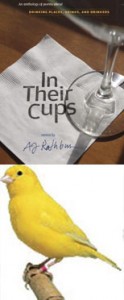 Continuing on with our week of poems from In Their Cups (in honor of the upcoming release reading which you already know lots about, and have told your friends about, and that hottie you see at the bus station) comes the poem with maybe my favorite title in the book: “Oh, For a Bowl of Fat Canary.” It’s by John Lyly, a writer in the late 1500s who had a way with words and drinks, and seems like someone you (and me) would want to spend a rowdy evening with, drinking and becoming jolly. “Canary” does not mean he was boozy enough to eat birds though. “Canary” was actually a type of sack from the Canary islands (with sack being an old term for a fortified white wine). Now, that makes it all a bit less unfriendly to our feathered friends.
Continuing on with our week of poems from In Their Cups (in honor of the upcoming release reading which you already know lots about, and have told your friends about, and that hottie you see at the bus station) comes the poem with maybe my favorite title in the book: “Oh, For a Bowl of Fat Canary.” It’s by John Lyly, a writer in the late 1500s who had a way with words and drinks, and seems like someone you (and me) would want to spend a rowdy evening with, drinking and becoming jolly. “Canary” does not mean he was boozy enough to eat birds though. “Canary” was actually a type of sack from the Canary islands (with sack being an old term for a fortified white wine). Now, that makes it all a bit less unfriendly to our feathered friends.
Oh, For a Bowl of Fat Canary
Oh, for a bowl of fat Canary,
Rich Palermo, sparkling Sherry,
Some nectar else, from Juno’s dairy;
Oh, these draughts would make us merry!
Oh, for a wench (I deal in faces,
And in other daintier things);
Tickled am I with her embraces,
Fine dancing in such fairy rings.
Oh, for a plump fat leg of mutton,
Veal, lamb, capon, pig, and coney;
None is happy but a glutton,
None an ass but who want money.
Wines indeed and girls are good,
But brave victuals feast the blood;
For wenches, wine, and lusty cheer,
Jove would leap down to surfeit here.
—Oh, For a Bowl of Fat Canary, John Lyly
September 21, 2010
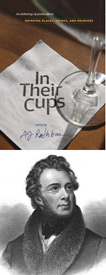 In Their Cups week continues here at Spiked Punch, with another poem from the raddest collection of drinking and drinkers poems I’ve ever been associated with up to date (if you missed it, it’s a week celebrating In Their Cups because of a certain reading this Sunday). For today’s pick, I’m going with a poem celebrating one of my favorite drinks, and the drink to have the first Saturday in May–the Mint Julep of course. This poem about the legendary birth of the Mint Julep is by Charles Fenno Hoffmann, who was a New York writer, editor, and critic in the 1800s. If you’ve ever had a truly well-made Mint Julep (on May 1st or any other day), you’ll understand why he’d write such a ringing and singing and immortalizing number about the drink (and if you haven’t had a Mint Julep that matches the below, maybe we need to get you a better recipe or point you to a different watering hole).
In Their Cups week continues here at Spiked Punch, with another poem from the raddest collection of drinking and drinkers poems I’ve ever been associated with up to date (if you missed it, it’s a week celebrating In Their Cups because of a certain reading this Sunday). For today’s pick, I’m going with a poem celebrating one of my favorite drinks, and the drink to have the first Saturday in May–the Mint Julep of course. This poem about the legendary birth of the Mint Julep is by Charles Fenno Hoffmann, who was a New York writer, editor, and critic in the 1800s. If you’ve ever had a truly well-made Mint Julep (on May 1st or any other day), you’ll understand why he’d write such a ringing and singing and immortalizing number about the drink (and if you haven’t had a Mint Julep that matches the below, maybe we need to get you a better recipe or point you to a different watering hole).
The Mint Julep
‘Tis said that the gods on Olympus of old
(And who the bright legend profanes with a doubt?)
One night, ’mid their revels, by Bacchus were told
That his last butt of nectar had somehow run out!
But determined to send round the goblet once more,
They sued to the fairer immortals for aid
In composing a draught which, till drinking were o’er,
Should cast every wine ever drank in the shade.
Grave Ceres herself blithely yielded her corn,
And the spirit that lives in each amber-hued grain,
And which first had its birth from the dew of the morn,
Was taught to steal out in bright dewdrops again.
Pomona, whose choicest of fruits on the board
Were scattered profusely in every one’s reach,
When called on a tribute to cull from the hoard,
Expressed the mild juice of the delicate peach.
The liquids were mingled while Venus looked on
With glances so fraught with sweet magical power,
That the honey of Hybla, e’en when they were gone,
Has never been missed in the draught from that hour
Flora, then, from her bosom of fragrancy, shook,
And with roseate fingers pressed down in the bowl,
All dripping and fresh as it came from the brook,
The herb whose aroma should flavor the whole.
The draught was delicious, and loud the acclaim,
Though something seemed wanting for all to bewail,
But Juleps the drink of immortals became,
When Jove himself added a handful of hail.
— The Mint Julep, Charles Fenno Hoffmann
September 19, 2010
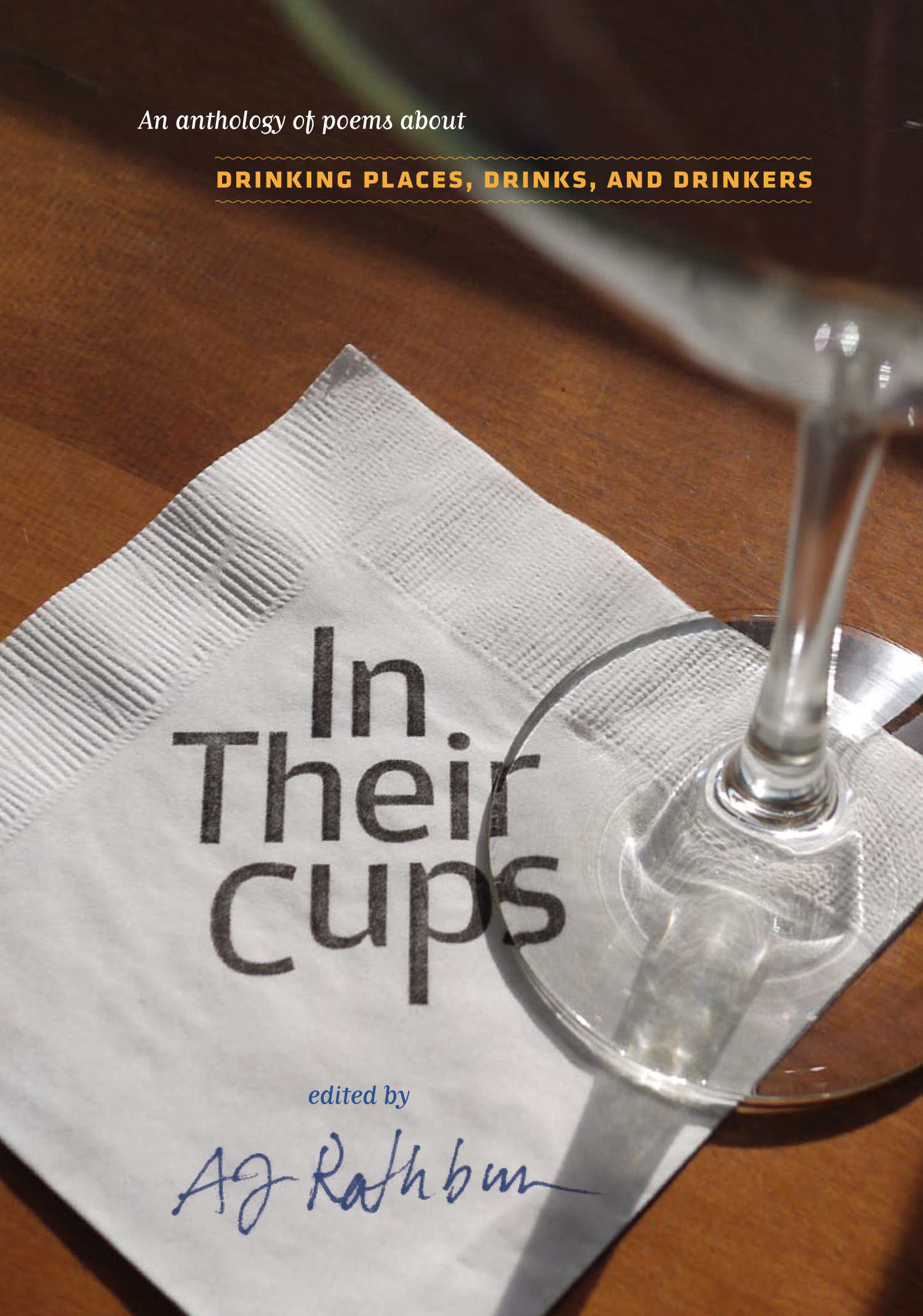 With the release reading for In Their Cups: An Anthology of Poems about Drinking Places, Drinks, and Drinkers just around the corner (and by “just around the corner” I mean Sunday, September 26th, at 3 pm, at the almighty Open Books), I wanted to prime the proverbial poetic drunken pump with a couple choice selections from said book. To get things started, much like the book itself gets started, here’s Keats’ rollicking reverie to his favorite bar, the Mermaid Tavern. It’s somehow weirdly (well, maybe it’s not weird–what do you
With the release reading for In Their Cups: An Anthology of Poems about Drinking Places, Drinks, and Drinkers just around the corner (and by “just around the corner” I mean Sunday, September 26th, at 3 pm, at the almighty Open Books), I wanted to prime the proverbial poetic drunken pump with a couple choice selections from said book. To get things started, much like the book itself gets started, here’s Keats’ rollicking reverie to his favorite bar, the Mermaid Tavern. It’s somehow weirdly (well, maybe it’s not weird–what do you 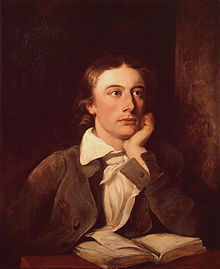 think, bar lovers?) reassuring to me that Keats had a favorite drinking spot in the early 1800s that he wrote about, and by his writing I think I might have enjoyed sitting there with pals having pints (and the occasional Dog’s Nose, as they did at the time). So, take a step back with Mr. Keats before all this internet-y-ness, when folks actually did their talking and drinking face-to-face.
think, bar lovers?) reassuring to me that Keats had a favorite drinking spot in the early 1800s that he wrote about, and by his writing I think I might have enjoyed sitting there with pals having pints (and the occasional Dog’s Nose, as they did at the time). So, take a step back with Mr. Keats before all this internet-y-ness, when folks actually did their talking and drinking face-to-face.
Lines on the Mermaid Tavern
Souls of Poets dead and gone,
What Elysium have ye known,
Happy field or mossy cavern,
Choicer than the Mermaid Tavern?
Have ye tippled drink more fine
Than mine host’s Canary wine?
Or are fruits of Paradise
Sweeter than those dainty pies
Of venison? O generous food!
Drest as though bold Robin Hood
Would, with his maid Marian,
Sup and bowse from horn and can.
I have heard that on a day
Mine host’s sign-board flew away,
Nobody knew whither, till
An astrologer’s old quill
To a sheepskin gave the story,
Said he saw you in your glory,
Underneath a new old-sign
Sipping beverage divine,
And pledging with contented smack
The Mermaid in the Zodiac.
Souls of Poets dead and gone,
What Elysium have ye known,
Happy field or mossy cavern,
Choicer than the Mermaid Tavern?
— Lines on the Mermaid Tavern, John Keats
 It’s the time of year when everyone wants to borrow your punch bowl – heck, everyone wants to borrow my punch bowl, too, so I completely get where you’re coming from when you don’t want to let said punch bowl out of your sight. But, it’s also the season when we think most kindly, perhaps, of our friends and family. And those are the exact groups that want to borrow punch bowls! So, you probably have to lend it out. I’ll understand if you can’t exactly smile with the lending. But, I do have two ideas to help alleviate the potential pain. First, read the classic Oliver Wendell Holmes poem, “On Lending a Punch Bowl,” so you can know that others through history have gone the same route. Second, pick up the tipsy poetry collection In Their Cups, which features this very poem (and many other great ones). Actually, pick up two, and give one out when you loan the punch bowl. It seems the borrower should be reading it as well.
It’s the time of year when everyone wants to borrow your punch bowl – heck, everyone wants to borrow my punch bowl, too, so I completely get where you’re coming from when you don’t want to let said punch bowl out of your sight. But, it’s also the season when we think most kindly, perhaps, of our friends and family. And those are the exact groups that want to borrow punch bowls! So, you probably have to lend it out. I’ll understand if you can’t exactly smile with the lending. But, I do have two ideas to help alleviate the potential pain. First, read the classic Oliver Wendell Holmes poem, “On Lending a Punch Bowl,” so you can know that others through history have gone the same route. Second, pick up the tipsy poetry collection In Their Cups, which features this very poem (and many other great ones). Actually, pick up two, and give one out when you loan the punch bowl. It seems the borrower should be reading it as well.



























